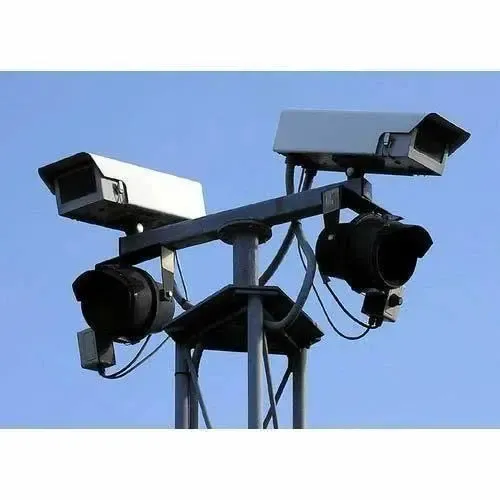Are CCTV Cameras the Solution to Animal Mistreatment in Chennai's ABC Centres?

Synopsis
Key Takeaways
- 60 CCTV cameras will be installed across five ABC centres.
- The initiative costs Rs 17.82 lakh.
- Cameras will have Internet connectivity and centralized monitoring capabilities.
- Video footage will be stored for a minimum of 30 days.
- Access to footage will be limited to authorized personnel.
Chennai, June 29 (NationPress) In light of increasing allegations regarding the mistreatment and fatalities of animals at city-operated Animal Birth Control (ABC) centres, the Greater Chennai Corporation (GCC) has revealed its intention to install 60 CCTV cameras across five of these facilities.
This initiative, anticipated to cost Rs 17.82 lakh, is designed to boost transparency and enhance monitoring systems at these centres.
As stated by GCC officials, each of the five ABC locations will be outfitted with 12 4G SIM card-enabled 3-megapixel CCTV cameras. These cameras will feature Internet connectivity and video management software for centralized oversight.
The tender issued by GCC invites proposals for the supply, installation, and upkeep of the cameras, which will come with a three-year warranty and support period.
This decision follows concerns expressed by the Tamil Nadu Animal Welfare Board regarding the maintenance of veterinary practices at ABC centres, particularly those conducting surgeries on stray dogs.
Allegations of mistreatment, negligence, and even deaths of animals at these centres have incited public outrage, compelling the civic body to implement corrective actions.
A GCC representative stated that the installation of CCTV cameras will bolster security measures, guarantee accountability, and avert the mistreatment or demise of animals at these centres.
“The video surveillance data captured by these cameras will be stored and monitored as per GCC directives. Video feeds will be retained for a minimum of 30 days and linked to a network video recorder (NVR) unit,” the representative elaborated.
Highlighting the significance of data security, the official indicated that ownership of the footage will rest with the GCC, with access limited to authorized departmental personnel.
“Once the camera angle is established, there should be a mechanical locking system to prevent the camera from tilting, vibrating, or altering its view,” the official mentioned.
GCC contends that the presence of surveillance cameras will provide essential documentation to identify and address wrongdoings.
“The video footage can serve as evidence for security authorities to act swiftly in cases of violations,” the representative noted.
The tender process for selecting vendors to carry out this project is currently in progress. GCC anticipates completing the installation shortly after finalizing contracts to enhance conditions and foster public confidence in the operations of ABC centres.







